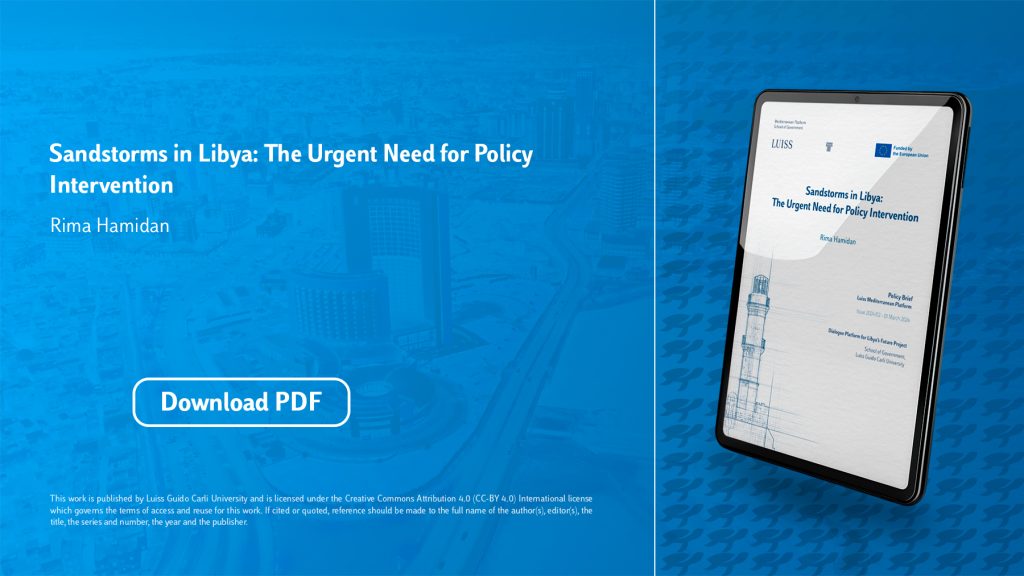- Rima Hamidan
Executive Summary
Libya, situated in the world’s dustiest region, is frequently afflicted by intense sand and dust storms, posing significant climate challenges with adverse effects on health, agriculture, and the economy. Addressing these challenges necessitates mitigation efforts centred on sustainable land and water management, alongside improvements in warning and monitoring systems. Libyan environmental policies have failed due to the worsening political and security conditions in the country. Moreover, the absence of decentralised institutional structures has led to poor governance mechanisms, characterised by ineffective decision-making and coordination, widespread corruption, inadequate data collection systems, and a lack of active civil society engagement.

